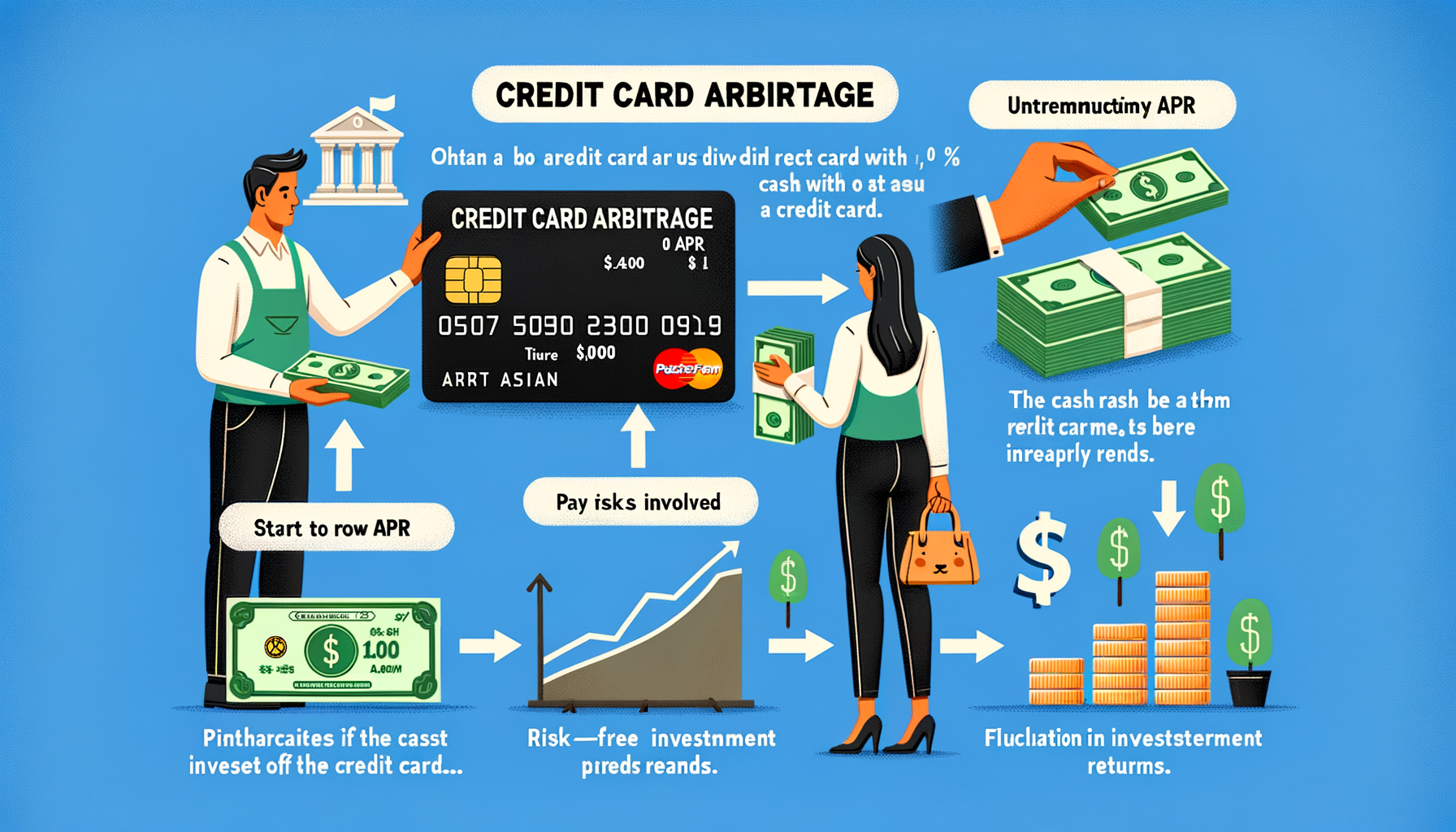Credit card arbitrage is a financial strategy employed by some savvy consumers to take advantage of the differences between various credit interest rates and investment returns. While it might seem like an attractive way to leverage the financial system to one’s benefit, it is fraught with potential risks and complications that must be carefully assessed. This article delves into the intricacies of credit card arbitrage and evaluates the associated risks to help readers understand whether this approach could be a viable financial tactic or a risky gamble.
Understanding Credit Card Arbitrage
Credit card arbitrage involves using the credit available from credit cards to invest in higher-yielding opportunities. Typically, individuals draw on zero-percent introductory APR offers or low-interest balance transfers to borrow money inexpensively. The borrowed funds are then invested in savings accounts, certificates of deposit, or other vehicles that offer a return higher than the borrowing costs. The goal is to earn a profit from the spread between the interest paid on the borrowed funds and the interest earned from the investments.
The strategy hinges on meticulous timing and management of credit card terms. Arbitrageurs must carefully track when introductory periods end, and standard interest rates begin to ensure that they do not end up paying high-interest charges. Payments must also be managed diligently to avoid late fees or penalties that could negate any profits from the investments. Credit card arbitrage requires not only an understanding of the credit card terms but also a strong grasp of investment opportunities and their respective risks.
Successfully executing credit card arbitrage also means having an exit strategy. Before the favorable terms expire, the investor must be prepared to pay off the credit card balance without incurring losses. This often involves liquidating the investment at the right time, which can be challenging if market conditions are unfavorable. A comprehensive understanding of both the credit and investment markets is paramount to making informed decisions that could make or break the arbitrage strategy.
Evaluating Arbitrage Risks
The most apparent risk in credit card arbitrage is the potential for interest rates to rise or for the investor to miss a payment, in which case the arbitrageur would incur fees and higher interest rates that could quickly eclipse any investment gains. Unanticipated changes in credit terms or shifts in the economic landscape can result in costs that were not factored into the original strategy, rendering the whole endeavor unprofitable. Moreover, the reliance on zero or low-interest rates means that the strategy can be undermined by any change in the credit card issuer’s policies.
Credit score implications are another vital risk to consider. Utilizing a large portion of available credit can significantly increase one’s credit utilization ratio — a major component of credit scores. High utilization can lead to a drop in the arbitrageur’s credit score, which may result in higher borrowing costs for future loans or difficulty in obtaining new credit. Additionally, opening multiple credit accounts to maximize borrowing can also negatively impact credit history, as it affects the average age of accounts and can signal potential risk to lenders.
Lastly, the investment risk cannot be ignored. The returns on the investments used in credit card arbitrage are not guaranteed. Market volatility or lower-than-expected returns can diminish the anticipated profits or even lead to a loss. Furthermore, the need for highly liquid investments to repay the credit card debt when it comes due limits the types of investments that can be considered, often excluding higher-return, longer-term options. This need for liquidity, along with the short-term nature of many credit card offers, makes it difficult to achieve substantial returns without taking on considerable risk.
Credit card arbitrage might seem like an attractive shortcut to financial gain, but it’s a strategy that carries significant risks. From potentially damaging credit scores to exposing oneself to market unpredictability, the dangers are manifold and can have long-lasting repercussions. It requires a high degree of financial acumen, strict discipline, and close monitoring of both credit terms and investment performance. Those considering credit card arbitrage must weigh these risks carefully against the potential rewards and consider whether they are equipped to manage the complexities involved in such a speculative financial tactic.
